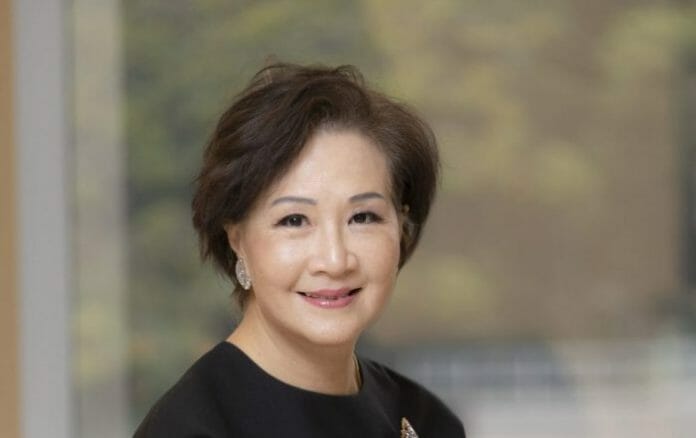The shortage of oncologists is an issue faced by the whole world, including Malaysia. Demand for cancer treatment is expected to grow by 40 percent over the next six years, while at the same time, the American Society of Clinical Oncology is projecting a shortage of more than 2,200 oncologists by 2025.
‘Closer to home, the Ministry of Health has reported that Malaysia needs 300 oncologists based on the WHO guideline of 1 oncologist per 10 million population. Malaysia currently has only 117 oncologists, indicating a sheer shortage of oncologists in the country.
“One of the main issues that the country faces are that oncologists are not easy to be trained to match the ever-increasing cancer incidences in the country. As oncology is a very specialised field, the average duration taken to train an oncologist in Malaysia is estimated to take an average of 5 to 10 years,” says Phoebe Ho, Chief Executive Officer of Integrated Oncology Centres (IOC).
Another issue, she says, is that cancer incidences are rising rapidly, and this adds to the burden of cancer care in Malaysia, creating a larger gap between the number of oncologists to match patients.
Reports show that cancer incidences in Malaysia have been increasing rapidly, with new incidences registering growth by 11.3 percent and advanced cancer cases increasing by 8.5 percent from 2007 – 2011 period to 2012 – 2016 period.
This increase is expected to continue as Malaysia’s population continues to age.
Tackling The Challenges Of A Fragmented Cancer Care System
“Public hospitals across Asia are mostly overburdened and with long waiting-time hence the push for patients to seek treatment in private hospitals.
“However, most private hospitals do not focus on one specialty but many specialities and often do not have the full range of cancer treatment from diagnostics till post cancer is under one system,” Phoebe tells BusinessToday.
Additionally, not all private or public hospitals have inhouse oncologists or a team of allied health professionals such as radiotherapists or medical physicists with expertise in advanced cancer treatment.
As cancer treatment requires treatment modalities including surgery, radiotherapy, chemotherapy, patients have to seek treatment from different healthcare providers.
With very few private hospitals offering the full integrated cancer care model across the whole country, most of the time, patients have to seek treatment from different healthcare providers, hence leading sometimes to confusion, financial burden and time wastage.
This also affects the patients’ psychosocial wellbeing, with this additional burden to travel from one healthcare provider to another. The variation of quality in cancer treatment received by the patients is another cause of stress. All these factors lead to a fragmented cancer treatment journey.
IOC believes that one way to overcome this challenge is through the introduction of an integrated cancer care model in Asia as it provides all of the services that a patient needs including treatment services, social support and nutritional needs.
“This whole care setting allows the patient needs including treatment services, social support and nutritional needs. As emotional needs are met, the physical treatment of cancer can be more successful,” she says.
Through an integrated cancer care approach, doctors and allied health professionals can work together as a team to customise plans for patients.
Under the integrated cancer care model, Phoebe says, doctors and dietitians assess patients’ nutritional status and address deficiencies through diet modification, education, dietary supplements with the input of the doctors in charge of treatment plans.
She also highlights that the health ministry plays their part by adopting greater awareness of boosting prevention and early diagnosis, through health education and public awareness programmes.
How Can Private Entities Help?
“The setting up of an oncology treatment centre requires high capex investment accompanied with complex requirements and with the significant need for qualified oncologists. Hence, there is still a lack of specialised cancer centres within large private tertiary hospitals in the public healthcare system in Malaysia,” Phoebe says.
IOC currently focuses on filling the gap by focusing on building single-specialty cancer centres across Asia and in Malaysia and aims to create career pathways to further develop talent in the private oncology sphere.
“We see ourselves working hand-in-hand with the government sector to come together to support on-going education of healthcare professionals involved in cancer management through regular workshops, fellowship opportunities with experienced oncologists and bring home new technologies that can assist in better treatment management,” she says.
Future Plans
“In Malaysia, IOC seeks to increase accessibility for patients to qualify for cancer treatment. We formed a partnership with Beacon Hospital to deliver efficient and high-quality oncology care in 2020.
“Partnering with Beacon, plans are in the pipeline to increase accessibility of patients to outpatient cancer treatments especially in states where there is no provision of oncology services in the public or private settings and patients have to rely on visiting doctors from other states for consultation,” Phoebe tells BusinessToday.
Based on IOC’s internal patient survey, 75 percent of patients prefer to receive treatment closer to home. Hence, IOC plans to build oncology outpatient centres so patients in these areas can have access to cancer treatment nearer to their homes.









